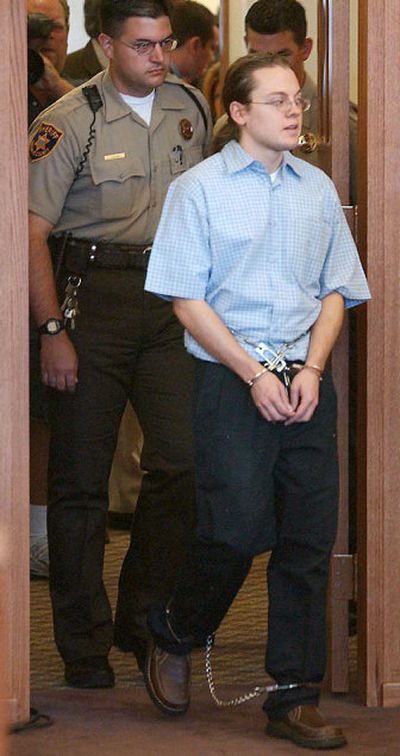Supreme Court to rule on insanity defense

WASHINGTON – Ever since John W. Hinckley Jr. was acquitted on grounds of insanity in the 1981 shooting of President Reagan, states have made it harder for defendants to escape criminal punishment by claiming mental illness.
But on Wednesday, the U.S. Supreme Court heard arguments on whether some states may have gone too far.
The case the justices took up involves Eric Michael Clark of Flagstaff, Ariz. Clark, 17 at the time, was behaving bizarrely and suffering delusions in June 2000 when he drove his pickup through a neighborhood in the middle of the night, blaring loud music. He recently had been discharged from a mental hospital. When a police officer responded to a complaint, Clark shot and killed him, then fled.
In 1993, Arizona had tightened its insanity law, saying mental illness or a “diminished capacity” was not a defense to a crime. A state judge concluded that Clark was not insane because he had fled the crime scene and therefore knew the murder was wrong. Clark was convicted of first-degree murder and sentenced to life in prison.
“A state can define insanity as it sees fit,” said Arizona state attorney Randall M. Howe on Wednesday. And under Arizona’s law, “evidence of mental disease” is not a legal excuse for a crime, he said.
At issue for the Supreme Court is whether it is unconstitutional to convict defendants of intentional murder even if they were delusional at the time of the crime. Usually, prosecutors must prove the defendant knowingly and intentionally committed the crime.
“Eric was delusional, and … he believed he was killing an alien,” his attorney, David Goldberg, told the justices. Goldberg argued that because his client was paranoid and delusional, he lacked the necessary criminal intent.
After his arrest, Clark was judged not fit to stand trial. Three years later, however, he was well enough to be tried before a judge and was convicted.
If the Supreme Court were to rule that mentally disturbed persons cannot be held accountable as criminals, it would have a broad impact. A ruling in the case of Clark v. Arizona is expected by June.